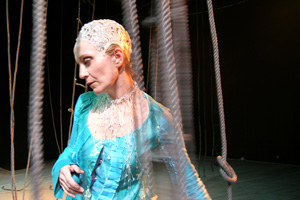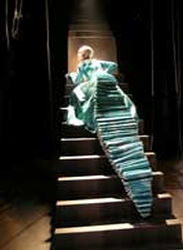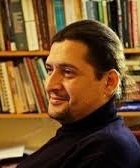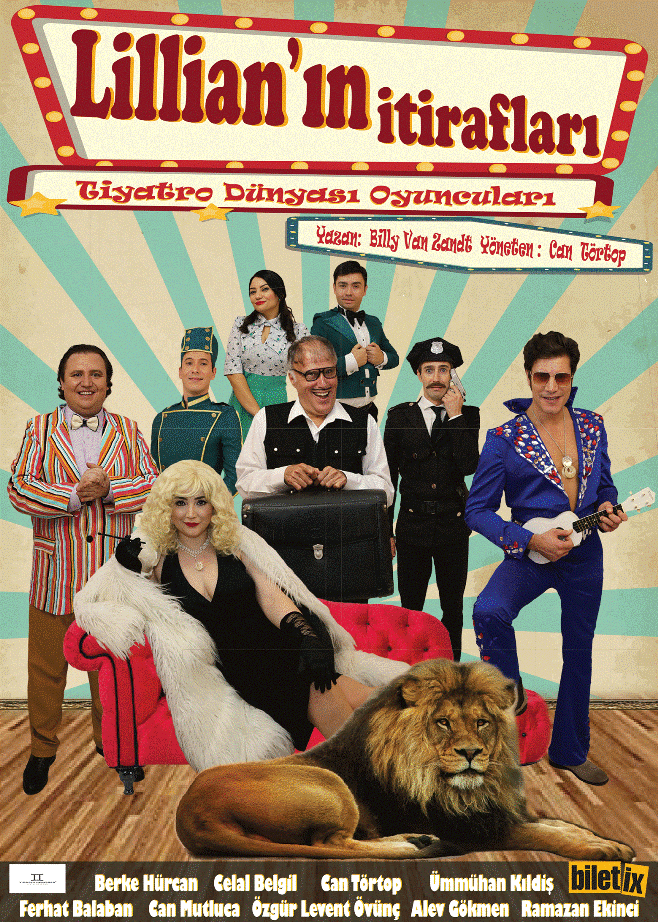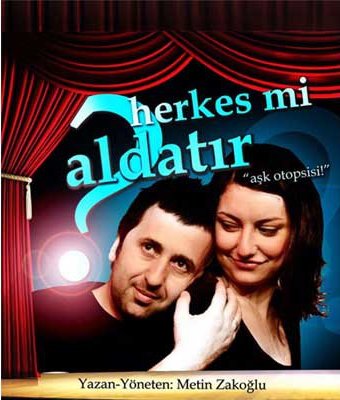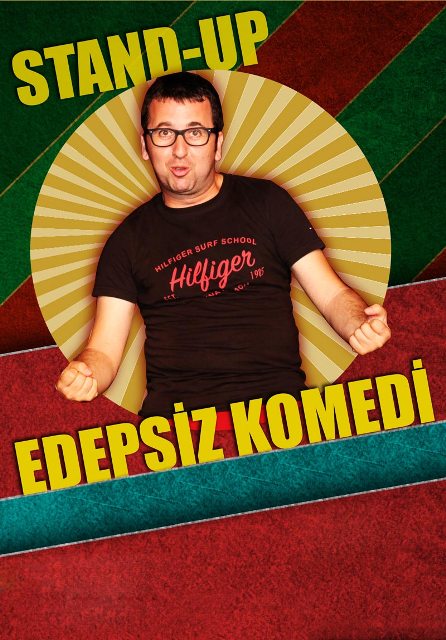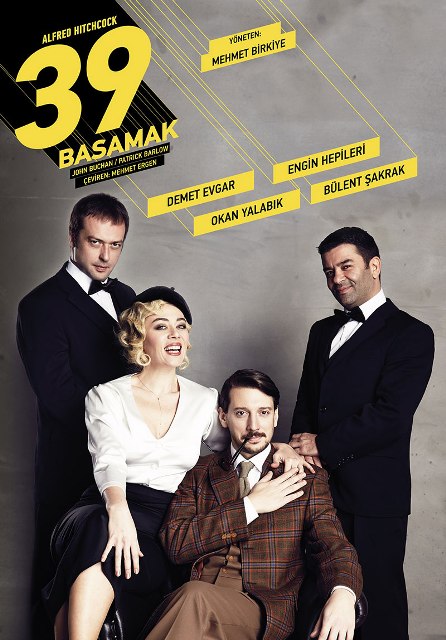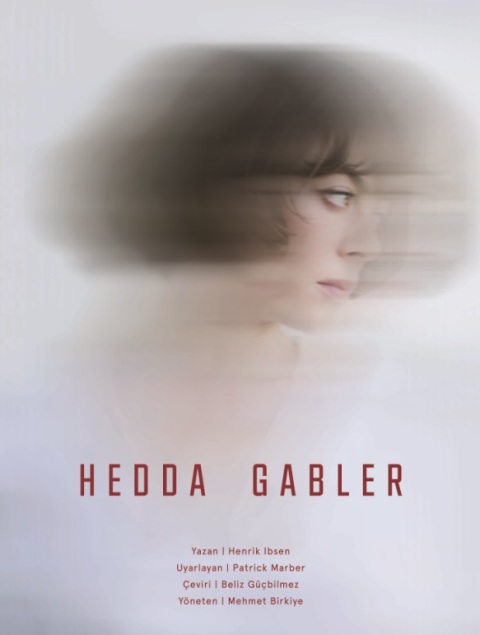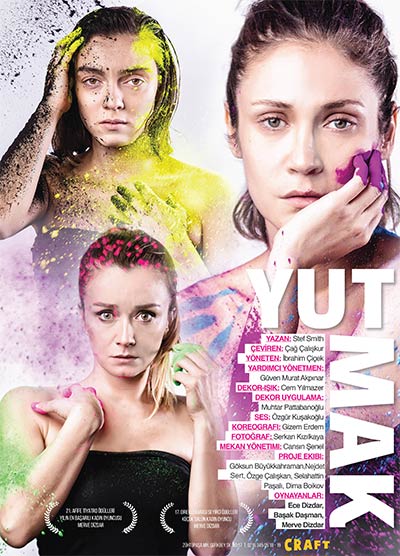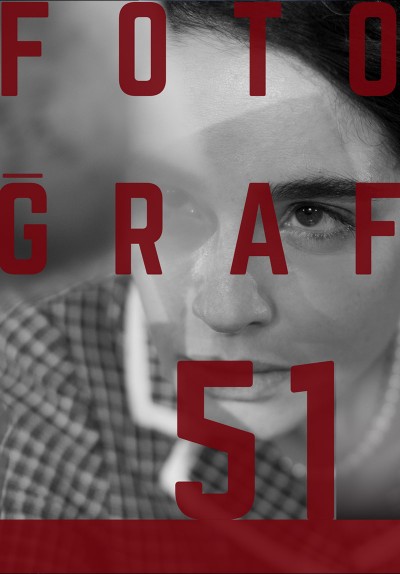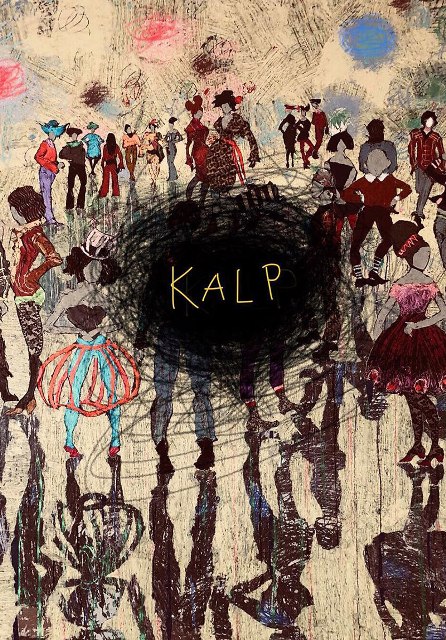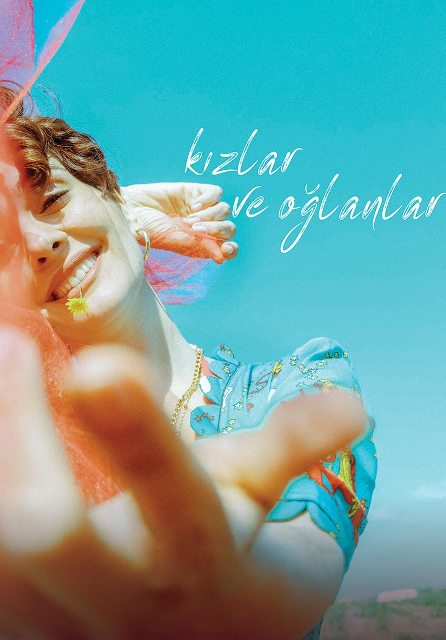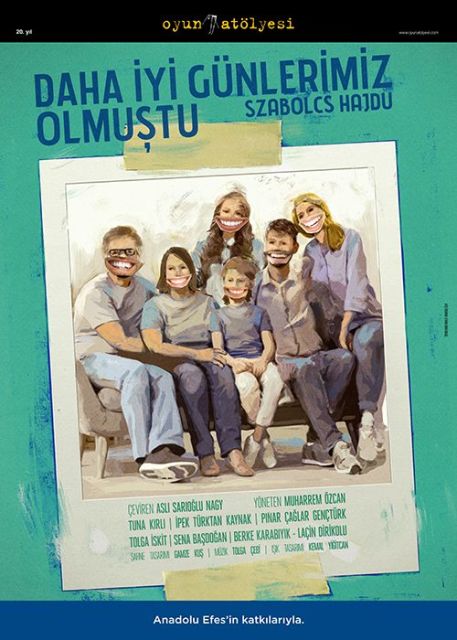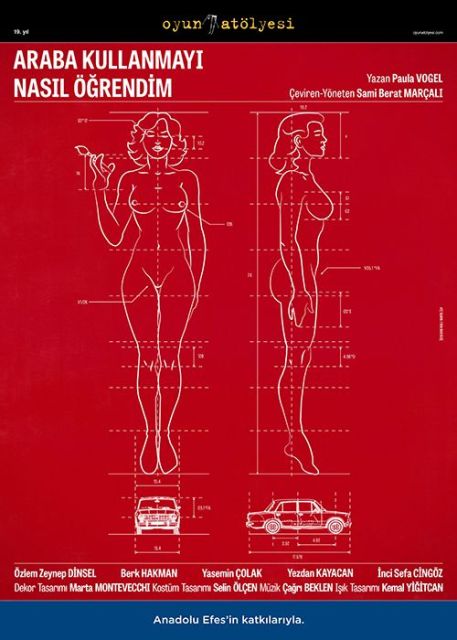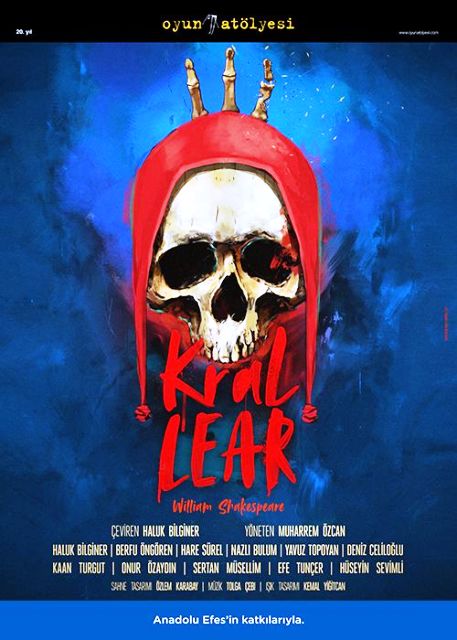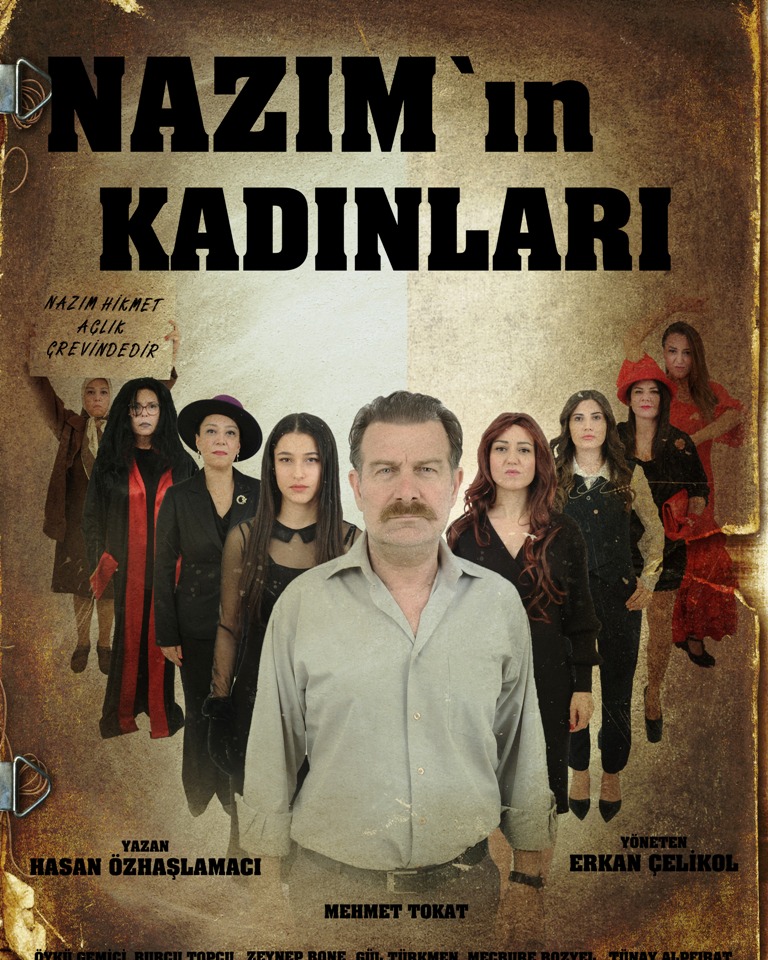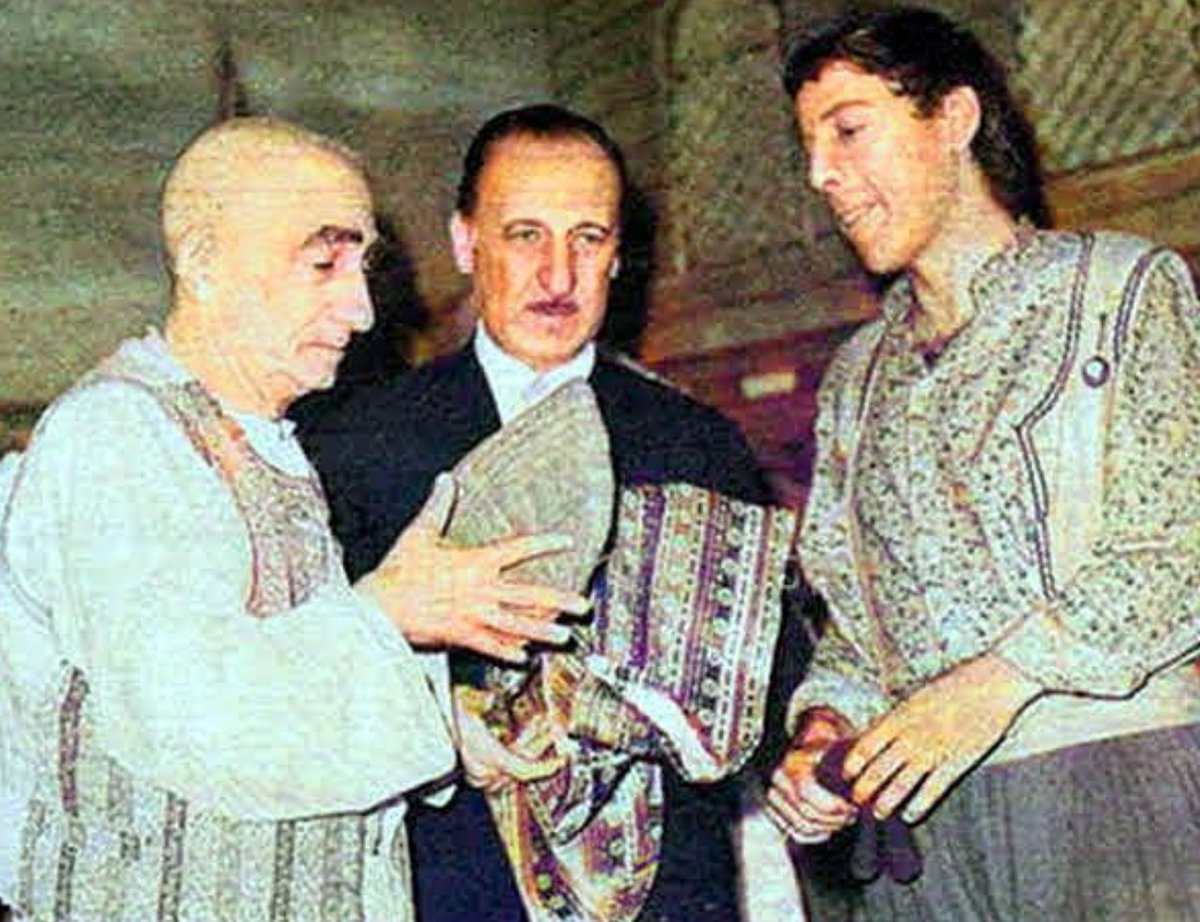| | Tiyatro Kursu | Şirket Tiyatrosu | | ||||||||||||||||||||||||||||||||||||||||||||||||||||
|
||||||||||||||||||||||||||||||||||||||||||||||||||||
| | Ana Sayfa | Hakkımızda | Yazılar | Haberler | Yazarlar | Tiyatro Oyunları | Tiyatro Grupları | Sanatçılar | Kaynak | Duyuru Panosu | | ||||||||||||||||||||||||||||||||||||||||||||||||||||
|
An Interview with a Famed Stage Director Avra Sidiropoulou Zeynep Kehaya Avra Sidiropoulou, a talented and famed Greek writer & stage director. She has a worthwhile background that impresses me all the time. I had a chance to have a deeper look at her studies. Directing is a very tough job, that someone should manage all the stuff and take responsibility of all the play. Since, directors 'act from back stage' we sometimes have a need to ask some questions to understand their feelings and studies more deeply. At this point, I addressed some questions to her, and I want to share this study with you. Mrs Sidiropoulou, first of all I want to ask you, how a play is formed in your mind before rehearsals start, and what kind of criterias become important when you select a play to stage? In order to work on a play, I need to have a specific personal connection to the material; it wont work for me otherwise. There is always an aspect of it that appeals to me in a visceral way and that aspect I try to explore with my collaborators. For me, the universality of a play is very important its got to be able to speak through time and across cultures. Is there space for fun and adventure in theatre today or is it still keep its classical mission in terms of theatrical aspect?
All theatre is play. Every play is a call to adventure, a joined game for artists and spectators. I personally treat my work with a desire to create the circumstances for all of us to have fun; rehearsals should be like a party, extreme, rewarding and catharctic. Do you have any commercial concern when you start to prepare a play? How does this affect the development stage of the play ?
The idea of making a profit out of a production doesnt really every cross my mind. Sometimes, I wish it did! However, I always have to have a budget in mind before I embark on producing. Staying within the budget is the hard part. How can we get government to believe in theatre and are therefore worth supporting?
Access is the key word here. Its important for the state officials to be able to go to the theatre, watch as much as possible. Through that, eventually there is going to be some awareness, a growing interest in the arts. Seeing is believing; Once a trend is set, support will follow. Its all a matter of getting the right people into the theatres and get them acquainted with the form, in order for them to shed off their caution. What are the best ways of putting theatre at the heart of the community? Should directors aim this or let theatre just has a special audiences?
This is a tough question. I never enjoyed trusted the idea of a special audience. All audiences can become special, if only we trust their instincts and learn not to underestimate them. Im a big supporter of training an audience to appreciate the lovely things about theatre, the hidden sides, teach them how to feel the unseen, listen out for the unsaid. What are the characteristics of being a successful stage director ?
You can only be successful if your mind refuses to settle and your vision is struggling for expression that will not be compromised. Reaching out to people; evoking memories; creating images; making a spectator come to terms with, ultimately, what it means to be human. We know that you gave lectures at Boğazici University several times. How was this idea formed? And what are the reasons to choose Boğazici University?
I find teaching in Turkey a very rewarding experience and Istanbul itself means so much to me. It is the place where I find peace in times of turmoil. Bogazici is also a very special place. I have good friends there and Ive always thought the academic environment superb. Some people who knew of my directing work actually invited me to give a theatre class at Bogazici. That was back in 2001. Ever since then, as a result of the exciting things that materialized through that class, I have been a regular visiting scholar. The fact that my sister, Chryssi Sidiropoulou, is also a professor at Bogazici (Philosophy Department), makes it even more of a home for me. What were your expectations before you came to Turkey? Did the University give you possibility to perform the thinks that you intended to do in terms of theatre?
I really went to Turkey completely open, ready to explore the culture as much as possible and be exposed to new ways of being creative. I love teaching at Bogazici and have many ideas relating to other courses Id like to offer during summer school. Everytime I go back to Istanbul, it feels like a kind of homecoming. I must say , though, that our class (The Play and the Stage) could really benefit from a more generous attitude towards granting us a suitable space to work in! Most of the times we try to make do with regular classrooms, the actual theatre space always being given reserved for other activities. This is something that often impedes the quality of our work, discouraging, as it does, actual stage practice.
"Clytemnestra's Tears " written and directed by you, a tri-lingual version of the production was presented in Istanbul. The aim was to develop and strengthen Turkish-Greek Civic Dialogue within the framework of the Micro-Project Programme funded by the European Union. In this context, do you think the project has reached its aim?
Yes, I think it actually has. Were all very proud of that work and so happy we actually went through with our original idea, instead of getting cold feet at the complexity of the project and the numerous difficulties involved. We all learned to listen more. And to be more tolerant of difference. This in itself a major achievement. The project was important in terms of creating visceral and highly visual spectacle that transcends linguistic barriers. What kind of difficulties did you confront with when you were studying on staging the play in three different cultures? How was the development stage of the play formed?
The production brought together the three participating languages and cutlures through a synthesis of the three different manifestations of the character of Clytemnestra, presenting the three women (who are on stage simultaneously) in all their particularities, loss, daily concerns and ultimately, tragedy. As Clytemnestras character expresses existential anxiety and human relationships in their extreme form, the play touched upon sensitive issues that were manifested differently from one culture to the other. As a writer and director of the piece I had to confront these differences, engage and incorporate them into my work, using their underlying vitality in the composition of both text and performance.
Do you think that the production could touch audience, especially women whose story it tells?
The project tried to illuminate the role of women in the East and West, both in the past and in the present time and to investigate how these roles, distinctly cultural in their majority, have been generated, moulded and modified through the ages. Our aim was to help the spectators realise the commonness of fate that unites women in contemporary Turkish and Greek society. Through stage manifestations of the distinctly cultural ways of confronting loss, betrayal and personal tragedy that surface recurrently in the project, we wanted to unearth the concept of cultural otherness and to relate how this otherness can become a unifying force for women, in fact for people. Persona Theater Company was founded by you. The members of the theatre present many plays abroad. How did you determine to found a theater company? It all started in New York back in 1999. Some of us graduates of Columbia Universitys School of the Arts felt the need to found a company that would keep us together when wed throw ourselves in that wild world outside. Persona is a very flexible context for artists from all over the place to exchange ideas share images create possibilities construct opportunities for making strong, visceral, meaningful art. You are living in Athens and States alternately. Also you have been in many countries. So, can you compare Turkish Theatre with other theatres in other countries? How do you evaluate its development in terms of theatrical aspect?
I feel I havent seen enough of Turkish theatre to be able to answer this. The language barrier (Ive been notorious in my absolute hopelessness to learn the language in all these years!) makes it hard for me to appreciate Turkish plays fully. However, from what I know of Turkish theatre, there are some wonderful artists, very imaginative and sensitive directors and actors working in the medium. Mahir Gunsiray of Tiyatro Oyunevi with which Persona is preparing the Labirent project, for example; not to mention my talented Turkish Clytemnestra, Derya Durmaz. Performance art (live art) has gaining a great importance in all over the world. How can you relate theatre with performance art ?
There used to be so many prohibitions back in the times of conventional literary theatre; different roles were ascribed to different people exclusively. Things were constantly defined in ways that left little room for the cross-fertilization of art mediums. Ideas were to be labeled and disciplines kept separate. Not any more! Performance art emancipated the artists process from rigid classification. I love the blending of art forms into theatre, using the fine arts or technology as a structure and have them work together with or against the written word. Its a whole world that performance art opens. The possibilities are endless and I personally constantly struggle to be capture some of them... Athens, November 2007 Zeynep Kehaya
Yazının Türkçe'si için : http://www.tiyatrodunyasi.com/makaledetay.asp?makaleno=558
Yazarın Tüm Yazıları Paylaş  Tweet Tweet
|
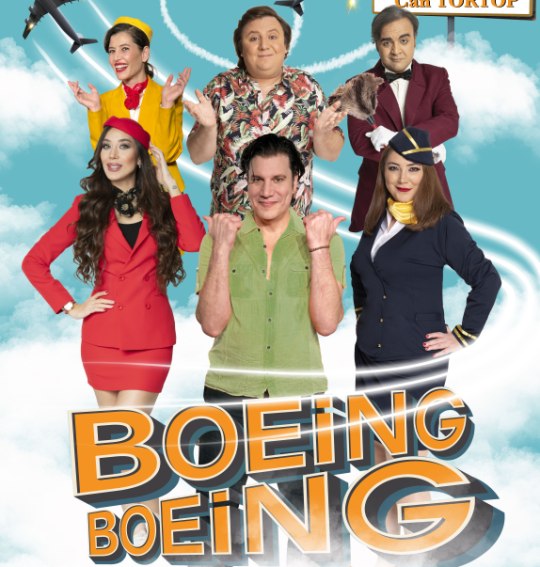
Tiyatro Kursu Başlıyor! 28 Ekim'den itibaren her SALI Kadıköy'de! Çalışanlara yönelik hobi sınıfı!  Duyuru Panosu!
Son Eklenen Tiyatro Oyunları
Güncel Yazılar
Yazar olmak ister misiniz? Yazar olarak tiyatrodunyasi.com ailesine katılmak, yazılarınızı yüzbinlerce tiyatroseverle paylaşmak isterseniz tiyatrodunyasi@tiyatrodunyasi.com adresine mail gönderebilirsiniz...
Güncel Haberler
Tiyatro Dünyası'nı takip Edin  |
|
 ..
.. |
|||||||||||||||||||||||||||||||||||||||||||||||||||
|
|
||||||||||||||||||||||||||||||||||||||||||||||||||||
